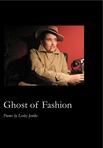Something to get off my chest (for whatever reason): Firs...
Something to get off my chest (for whatever reason):
First let me say I must be woefully out of touch with contemporary fiction. Wait. I am woefully out of touch with contemporary fiction. When and if I do read novels, I read the old guys and gals I'm familiar and generally happy with: Peter Carey, Alice McDermott, Cormac McCarthy, Kazu Ishiguro, Carol Shields, Philip Roth, etc. Yes. I know I'm boring and donkeys probably have better taste than I do, but affected,stylized and "gimmicky" fiction sticks in my craw in a way that I myself don't yet fully understand. Take, for instance, Jonathan Safrad Foer's book Extremely Loud and Incredibly Close. I read the novel for CCAD's summer reading selection (we chose it and there's MUCH to admire here and ultimately I'm happy with the choice). Am I just too conservative? Too cynical? Too dumb? Unfeeling? The over-writing and over-thinking simply overwhelms the story and leaves us finally with a too-easy sentimentality I'm altogether puzzled by. So why does this kind of thing seem all en vogue these days among fiction writers? Why? Why is "cuteness" rewarded? How do fiction writers get away with masking weak material with lots of surface-level bells and whistles? Ok. So I'm not saying Steve Martin's book An Object of Beauty is Pulitzer Prize-winning material, and I have lots of problems with the narrative, but it's subtle, scathing social commentary, it's--let's face it--less positive view of New York City circa 1990s/early-Aughts, can probably feel dirty and disconcerting to some readers. BUT WHAT'S WRONG WITH THAT? Who says literature is supposed to make us feel good about ourselves? I remember reading Toni Morrison's The Bluest Eye when I was, gosh, quite a young girl, and I remember feeling so damn terrible, so implicated---it changed my life. Of course, Steve Martin is no Toni Morrison. I'm not saying that. I'm just saying there are certain kinds of depressing. Yes Foer's book is depressing because it deals with the terrorist attacks in NYC on 9/11 and a young boy's grief, but it's the kind of depressing that reaffirms instead of questions, that soothes the reader instead of making her feel uncomfortable. Martin's book is depressing because it suggests that in the face of national disaster, our culture continued (and still continues) on a path of materialistic self-destruction. Or maybe I just don't know what the hell I'm talking about.
(BTW, I haven't read Foer's first book but I've heard good things, and I very much respect his intellect and talent)
First let me say I must be woefully out of touch with contemporary fiction. Wait. I am woefully out of touch with contemporary fiction. When and if I do read novels, I read the old guys and gals I'm familiar and generally happy with: Peter Carey, Alice McDermott, Cormac McCarthy, Kazu Ishiguro, Carol Shields, Philip Roth, etc. Yes. I know I'm boring and donkeys probably have better taste than I do, but affected,stylized and "gimmicky" fiction sticks in my craw in a way that I myself don't yet fully understand. Take, for instance, Jonathan Safrad Foer's book Extremely Loud and Incredibly Close. I read the novel for CCAD's summer reading selection (we chose it and there's MUCH to admire here and ultimately I'm happy with the choice). Am I just too conservative? Too cynical? Too dumb? Unfeeling? The over-writing and over-thinking simply overwhelms the story and leaves us finally with a too-easy sentimentality I'm altogether puzzled by. So why does this kind of thing seem all en vogue these days among fiction writers? Why? Why is "cuteness" rewarded? How do fiction writers get away with masking weak material with lots of surface-level bells and whistles? Ok. So I'm not saying Steve Martin's book An Object of Beauty is Pulitzer Prize-winning material, and I have lots of problems with the narrative, but it's subtle, scathing social commentary, it's--let's face it--less positive view of New York City circa 1990s/early-Aughts, can probably feel dirty and disconcerting to some readers. BUT WHAT'S WRONG WITH THAT? Who says literature is supposed to make us feel good about ourselves? I remember reading Toni Morrison's The Bluest Eye when I was, gosh, quite a young girl, and I remember feeling so damn terrible, so implicated---it changed my life. Of course, Steve Martin is no Toni Morrison. I'm not saying that. I'm just saying there are certain kinds of depressing. Yes Foer's book is depressing because it deals with the terrorist attacks in NYC on 9/11 and a young boy's grief, but it's the kind of depressing that reaffirms instead of questions, that soothes the reader instead of making her feel uncomfortable. Martin's book is depressing because it suggests that in the face of national disaster, our culture continued (and still continues) on a path of materialistic self-destruction. Or maybe I just don't know what the hell I'm talking about.
(BTW, I haven't read Foer's first book but I've heard good things, and I very much respect his intellect and talent)
Published on April 20, 2011 11:23
No comments have been added yet.



